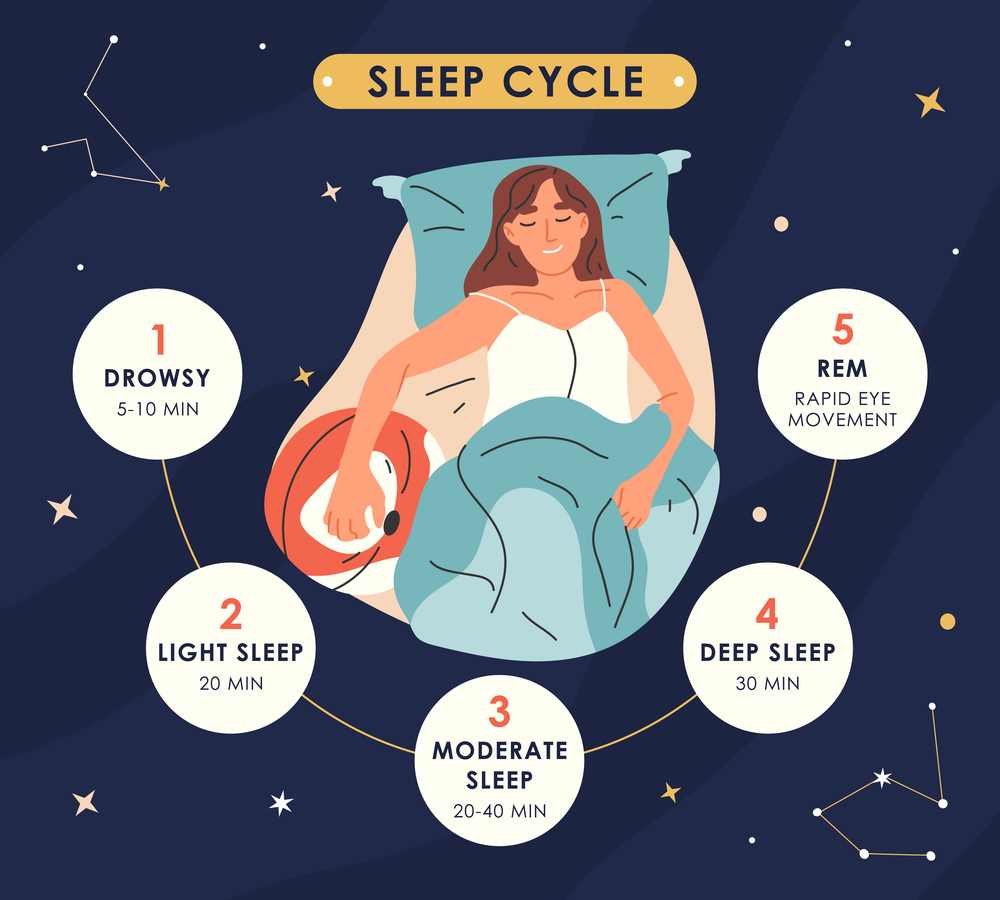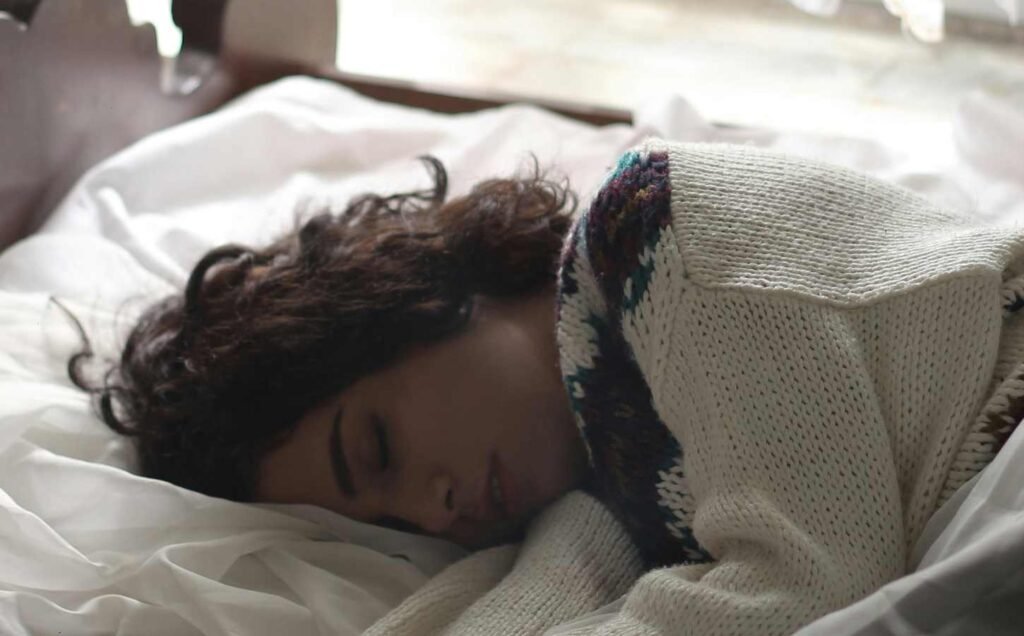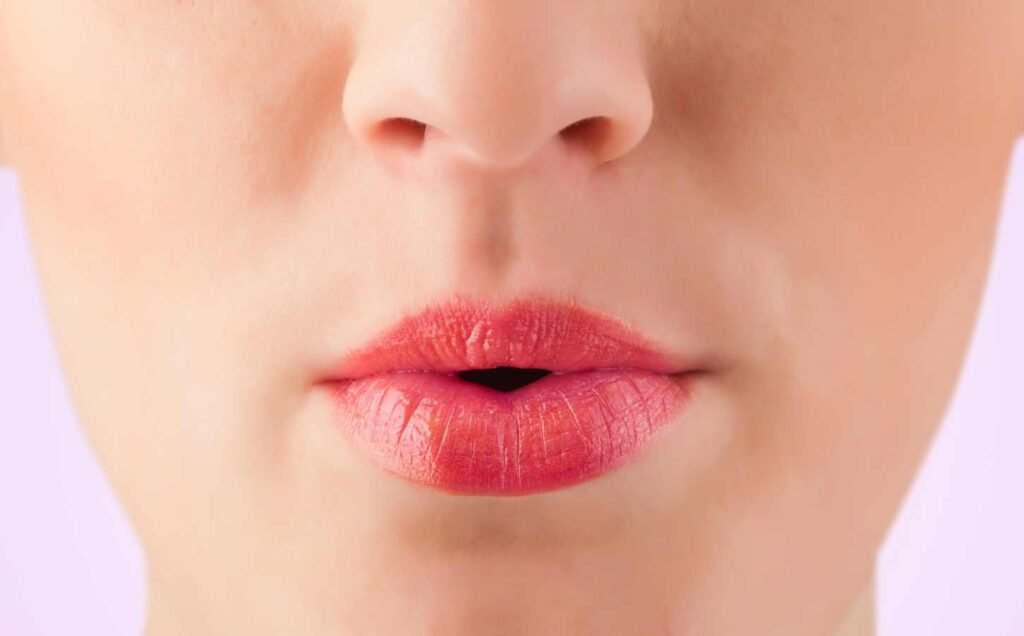Irregular sleep-wake rhythm disorder is a circadian rhythm sleep disorder characterized by a disrupted sleep-wake cycle.
Individuals with this disorder experience irregular sleep patterns that often do not align with the typical day-night cycle. This results in fragmented sleep and excessive daytime sleepiness.
The sleep-wake cycle is regulated by the body’s internal clock, which is influenced by external cues such as light and darkness. In individuals with irregular sleep-wake rhythm disorder, this internal clock is disrupted, leading to a lack of synchronization between the sleep-wake cycle and the external environment. This can be caused by a variety of factors, including neurological conditions, medication use, and lifestyle factors.

Symptoms of irregular sleep-wake rhythm disorder can include difficulty falling asleep or staying asleep, frequent napping during the day, and feeling tired or groggy upon waking. Treatment options for this disorder may include behavioral therapy, medication, and light therapy.
It is important for individuals with irregular sleep-wake rhythm disorder to work closely with a healthcare professional to develop an individualized treatment plan.
Understanding Irregular Sleep-Wake Rhythm Disorder
Definition and Symptoms
Irregular Sleep-Wake Rhythm Disorder (ISWRD) is a type of circadian rhythm sleep disorder characterized by a disrupted sleep pattern. Individuals with ISWRD have no clear distinction between their sleep and wake periods, resulting in a fragmented and irregular sleep pattern.
The symptoms of ISWRD include difficulty falling asleep, excessive daytime sleepiness, and daytime fatigue. These symptoms can significantly impact an individual’s daily routine, affecting their ability to perform tasks, concentrate, and maintain social relationships.
Causes and Risk Factors
ISWRD can be caused by several factors, including neurodegenerative disorders such as dementia, traumatic brain injury, and genetic predisposition. Individuals with ISWRD often have a disrupted circadian rhythm, which can be caused by irregular sleep schedules, shift work, or frequent travel across time zones. Other risk factors for ISWRD include medical conditions such as depression, anxiety, and substance abuse.
Diagnosis
The diagnosis of ISWRD is typically made by a sleep physician or specialist after a thorough evaluation of the patient’s medical history, sleep logs, actigraphy, and sleep diary. The International Classification of Sleep Disorders (ICSD) defines the criteria for the diagnosis of ISWRD and other circadian rhythm sleep disorders. Treatment for ISWRD may include the use of melatonin, light therapy, and behavioral therapy to regulate sleep patterns and improve sleep quality.
In conclusion, understanding ISWRD is crucial in managing and treating this circadian rhythm disorder. By identifying the symptoms, causes, and risk factors, individuals with ISWRD can seek appropriate medical attention and receive effective treatment to improve their sleep patterns and overall quality of life.
Impacts on Health and Lifestyle
Effects on Cognitive Function
Irregular sleep-wake rhythm disorder can have negative impacts on cognitive function. Individuals with this disorder may experience difficulties with attention, memory, and decision-making. They may also have slower reaction times and reduced processing speed. These cognitive deficits can affect daily activities, such as work or school, and can lead to decreased quality of life.
Social and Occupational Consequences
The social and occupational consequences of irregular sleep-wake rhythm disorder can be significant. Individuals with this disorder may experience difficulties with maintaining employment due to daytime sleepiness and reduced productivity. They may also have challenges with social interactions, as their sleep-wake schedule may not align with that of their peers. This can lead to feelings of isolation and depression.
In addition, irregular sleep-wake rhythm disorder can exacerbate other medical and psychiatric disorders. For example, individuals with depression may experience worsening symptoms due to disrupted sleep patterns. Medical disorders such as diabetes and obesity may also be worsened by irregular sleep-wake rhythms.
Overall, the impacts of irregular sleep-wake rhythm disorder on health and lifestyle can be significant. It is important for individuals with this disorder to seek treatment and management strategies to improve their quality of life.
Treatment Strategies
Pharmacological Interventions
Pharmacological interventions are often used to treat irregular sleep-wake rhythm disorder. The most commonly used medication is melatonin, a hormone that regulates sleep and wake cycles. Melatonin supplements are available over the counter and can help individuals fall asleep at the appropriate time and maintain a consistent sleep schedule. Tasimelteon, a prescription medication, is also used to treat this disorder by regulating the body’s internal clock.
Hypnotics, a class of medication that induces sleep, may also be prescribed to help individuals fall asleep at the appropriate time. However, it is important to note that these medications can be habit-forming and should only be used under the guidance of a healthcare professional.
Behavioral and Environmental Modifications
Behavioral and environmental modifications can also be effective in treating irregular sleep-wake rhythm disorder. Sleep hygiene, which includes establishing a consistent sleep schedule, creating a sleep-conducive environment, and developing a bedtime routine, can help regulate sleep and wake cycles. Exposure to bright light in the morning and dim light in the evening can also help reset the body’s internal clock.
Chronotherapy and Light Therapy
Chronotherapy involves gradually shifting the sleep schedule to align with the desired sleep and wake times. This can be done by delaying or advancing the sleep schedule by a few hours each day until the desired sleep and wake times are achieved. Light therapy, which involves exposure to bright light in the morning and avoiding bright light in the evening, can also help reset the body’s internal clock.
In conclusion, treatment strategies for irregular sleep-wake rhythm disorder include pharmacological interventions, behavioral and environmental modifications, and chronotherapy and light therapy. It is important to work with a healthcare professional to determine the most appropriate treatment plan for each individual.
Managing Daily Life
Creating a Supportive Environment
Creating a supportive environment is one of the most important steps in managing irregular sleep-wake rhythm disorder. This involves maintaining a regular sleep-wake schedule, optimizing bedroom conditions, and adopting good sleep hygiene practices.
Maintaining a regular sleep-wake schedule involves going to bed and waking up at the same time every day, even on weekends. This helps to regulate the body’s internal clock and promote better sleep. Optimizing bedroom conditions involves making sure the bedroom is cool, quiet, and dark. This can be achieved by using blackout curtains, earplugs, and a fan or air conditioner.
Adopting good sleep hygiene practices involves avoiding caffeine, nicotine, and alcohol before bedtime, as well as avoiding stimulating activities such as using electronic devices or watching TV in the bedroom. It is also important to establish a relaxing bedtime routine, such as taking a warm bath or reading a book.
Adapting Work and Social Schedules
Adapting work and social schedules is another important step in managing irregular sleep-wake rhythm disorder. This involves seeking work accommodations, such as flexible work hours or the ability to work from home, if possible. It also involves planning social activities around the individual’s sleep schedule, such as scheduling events earlier in the day or on weekends.
Family support is also crucial in managing irregular sleep-wake rhythm disorder. Educating family members about the disorder and its impact on daily life can help them understand and support the individual’s needs. Educational resources, such as books, articles, and support groups, can also be helpful in providing information and support.
In summary, managing irregular sleep-wake rhythm disorder involves creating a supportive environment, adapting work and social schedules, and seeking family support and educational resources. By implementing these strategies, individuals with irregular sleep-wake rhythm disorder can improve their quality of life and achieve better sleep.
Special Populations
Elderly and Institutionalized Patients
Elderly individuals and institutionalized patients are at an increased risk of developing irregular sleep-wake rhythm disorder. This population is particularly vulnerable due to the disruption of their daily routines and environmental cues. Institutionalized elderly patients, in particular, may have limited access to natural light and may experience frequent disruptions to their sleep schedules due to medical procedures and staff interventions.
Studies have shown that interventions such as bright light therapy, melatonin supplementation, and behavioral interventions can improve sleep quality and reduce symptoms of irregular sleep-wake rhythm disorder in this population. However, the effectiveness of these interventions may vary depending on the underlying cause of the disorder and the individual’s overall health status.
Children and Adolescents with Neurodevelopmental Disorders
Children and adolescents with neurodevelopmental disorders such as autism spectrum disorder (ASD) and attention deficit hyperactivity disorder (ADHD) are also at an increased risk of developing irregular sleep-wake rhythm disorder. These individuals may have difficulty establishing a regular sleep schedule due to behavioral and sensory issues.
Behavioral interventions such as establishing a consistent bedtime routine, limiting screen time before bed, and creating a sleep-conducive environment can be effective in improving sleep quality in this population. Additionally, melatonin supplementation has been shown to be effective in improving sleep onset and duration in children with ASD and other neurodevelopmental disorders.
It is important to note that the use of medication to treat irregular sleep-wake rhythm disorder in children and adolescents should be carefully monitored by a healthcare professional, as some medications may have adverse effects on cognitive and behavioral development.
Overall, addressing irregular sleep-wake rhythm disorder in special populations requires a multifaceted approach that takes into account the underlying causes of the disorder, individual health status, and environmental factors. With appropriate interventions, individuals in these populations can experience improved sleep quality and overall well-being.
Advancements in Research
Understanding Biological Clocks
Research on the biological clock has come a long way in recent years. Scientists have discovered that the suprachiasmatic nucleus (SCN) located in the hypothalamus of the brain plays a key role in regulating the circadian rhythm. The SCN communicates with other parts of the brain to control the timing of various physiological processes, including sleep and wakefulness.
Recent research trials have shown that the circadian rhythm is not only regulated by the SCN but also by other biological rhythms, such as the sleep-wake cycle and the hormonal rhythms. This new understanding of the complex interplay between different biological rhythms has opened up new avenues for research into the causes and potential treatments of irregular sleep-wake rhythm disorder.
Innovative Therapies and Treatments
The emerging treatments for irregular sleep-wake rhythm disorder are based on the circadian rhythm theory. Light therapy is one such treatment that has shown promising results in resetting the biological clock. The therapy involves exposing the patient to bright light in the morning to help regulate the sleep-wake cycle.
Another innovative therapy is chronobiology, which involves the use of hormones to regulate the circadian rhythm. Melatonin, a hormone that regulates sleep, has been found to be effective in treating sleep-wake disorders. Researchers are also exploring the use of other hormones, such as cortisol and growth hormone, to regulate the circadian rhythm.
In addition to these therapies, research is ongoing into other potential treatments for irregular sleep-wake rhythm disorder. These include cognitive-behavioral therapy, which aims to improve sleep hygiene and establish regular sleep patterns, and medication-based therapies, which aim to regulate the circadian rhythm through the use of drugs.
Overall, the advancements in research into the biological clock and its regulation have opened up exciting new possibilities for the treatment of irregular sleep-wake rhythm disorder. With continued research and development, it is hoped that more effective and targeted therapies will become available for those suffering from this debilitating condition.
Preventative Measures
Promoting Healthy Sleep Habits
Promoting healthy sleep habits is the first line of defense against irregular sleep-wake rhythm disorder. Maintaining a regular sleep-wake schedule is crucial in regulating the sleep-wake cycle. Individuals with this disorder should aim to go to bed and wake up at the same time every day, even on weekends. In addition, practicing good sleep hygiene, such as creating a relaxing bedtime routine and avoiding stimulating activities before bed, can also help promote healthy sleep habits.
Environmental and Lifestyle Adjustments
Environmental and lifestyle adjustments can also be helpful in preventing irregular sleep-wake rhythm disorder. Lighting is an important factor in regulating the circadian rhythm sleep disorder. Individuals with this disorder should aim to expose themselves to bright light in the morning and avoid bright light in the evening. This can be achieved by spending time outside during the day and using dimmer lighting in the evening.
Meals can also affect the sleep-wake cycle. Individuals with this disorder should avoid heavy meals before bedtime and aim to have their last meal at least two hours before bedtime. Alcohol should also be avoided before bedtime as it can disrupt sleep.
Finally, exposure to daylight can also help regulate the sleep-wake cycle. Individuals with this disorder should aim to spend time outside during the day and avoid spending too much time indoors in dimly lit environments.
By implementing these preventative measures, individuals with irregular sleep-wake rhythm disorder can improve their sleep habits and regulate their sleep-wake cycle.
Frequently Asked Questions
What treatments are available for irregular sleep-wake rhythm disorder?
There are several treatments available for irregular sleep-wake rhythm disorder. The treatment options depend on the severity of the disorder and the underlying cause. Some common treatment options include light therapy, melatonin supplements, and behavioral therapy. In severe cases, medication may be prescribed to help regulate the sleep-wake cycle.
What are the common symptoms associated with sleep-wake disorders?
The symptoms of sleep-wake disorders can vary depending on the type and severity of the disorder. Some common symptoms include difficulty falling asleep or staying asleep, daytime fatigue, irritability, and difficulty concentrating. In some cases, sleep-wake disorders can also lead to depression and anxiety.
How does an irregular sleep schedule affect overall health?
An irregular sleep schedule can have a significant impact on overall health. It can lead to fatigue, decreased productivity, and increased risk of accidents. It can also increase the risk of developing chronic health conditions such as obesity, diabetes, and cardiovascular disease.
What are the underlying causes of circadian rhythm sleep disorders?
Circadian rhythm sleep disorders can be caused by a variety of factors, including genetics, shift work, and exposure to artificial light at night. Other factors that can contribute to circadian rhythm sleep disorders include certain medications, caffeine, and alcohol.
Are there medications effective in treating irregular sleep-wake rhythm disorder?
There are several medications that can be effective in treating irregular sleep-wake rhythm disorder. Some common medications include melatonin supplements, sedatives, and antidepressants. However, medication should only be used under the guidance of a healthcare professional.
How can one reset a disrupted circadian rhythm?
There are several ways to reset a disrupted circadian rhythm. One effective method is to establish a consistent sleep schedule and stick to it. Exposure to bright light in the morning and avoiding bright light at night can also help regulate the sleep-wake cycle. In some cases, medication or behavioral therapy may be necessary to reset the circadian rhythm.

Reclaiming Deep Restful Sleep: The Magnesium Deficiency Solution

Discover the natural solution to deep, restful sleep and magnesium deficiency through the efficacy of PUREDOSE® Micelle Liposomal Magnesium. This superior bioavailable supplement promotes optimal sleep support and overall well-being.
Continue reading: Reclaiming Deep Restful Sleep
Discover the Tongue Trick for Better Sleep: The U.S. Marine’s Secret

This tongue trick is designed to help you fall asleep in just two minutes by stimulating a specific nerve in your tongue, known as the “sleep nerve,” to promote relaxation and better sleep.
Continue reading: Discover the Tongue Trick for Better Sleep
MaryRuth Organics Sleep Gummies Without Melatonin Review: Do They Work?

These gummies are designed to promote relaxation and support sleep quality for adults. Unlike many other sleep aids, they don’t contain melatonin, so you won’t wake up feeling groggy or drowsy.
Continue reading: MaryRuth Organics Sleep Gummies Without Melatonin




